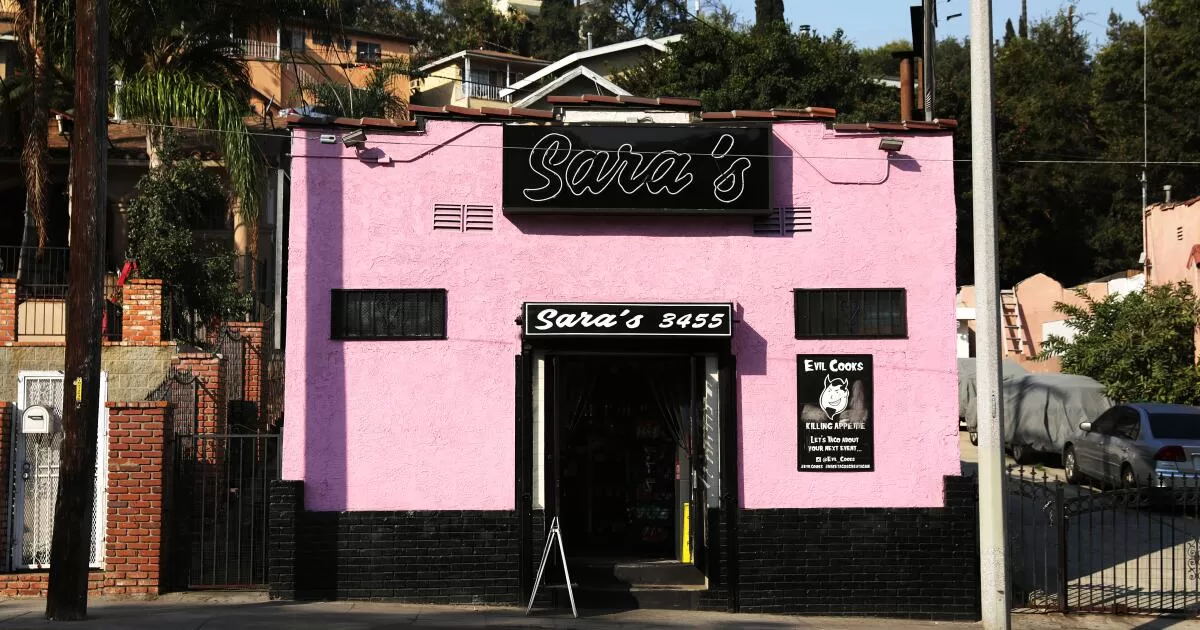There are endless ways to sample the rising talent in L.A.’s food scene. You could make reservations for a flashy new restaurant opening or scope out a taco stand before it goes viral. Pop-ups, often helmed by unknown chefs hoping to break into our city’s competitive dining arena, also serve as a fruitful way to discover new culinary concepts and switch up one’s restaurant routine.
The nature of pop-ups is unpredictable, with many chefs cycling through different locations on a weekly basis and concepts changing shape over time. The venues that play host to pop-ups — wine shops, breweries, neighborhood markets and cocktail bars — often use these mobile food concepts to support regular event schedules, including tastings and live DJ performances. With the increased cost of labor and ingredients, pop-ups can also take some financial pressure off of hosts.
“We excel as a wine bar and hosting,” says Nicole Dougherty, beverage director and co-owner of Thai Town wine bar Tabula Rasa. “Whether it’s a chef who eventually wants a brick and mortar, or whether it’s someone who wants to stay mobile, partnering with them just makes a little bit more sense for us long term.”
These pop-up partnerships often blossom into full-fledged restaurants, such as Ceci’s Gastronomia, a charming Italian marketplace in Silverlake from husband-and-wife Francesco Lucatorto and Francesca Pistorio, who originally started cooking together at Tabula Rasa’s pasta night pop-up in 2019.
“I really try to partner with pop-ups that align with [our] ethos and have a similar emphasis on hospitality, fresh ingredients and that have strong culinary backgrounds and people who I think are rising stars on the scene,” Dougherty says.
For many pop-ups, the essential appeal is freedom to experiment, without many of the expenses and other responsibilities of running a bricks-and-mortar business, especially in an increasingly challenging environment for restaurants. They allow chefs space to hone in on new concepts, refine dishes and build a fan base for eventual restaurants.
Puin “Paul” Chuanchaisit grew up in Bangkok eating pasta dishes that blended Thai, Italian and Japanese flavors, but upon moving to Los Angeles in 2017, had a difficult time finding his favorite street snacks in the city’s expansive dining scene. He launched Dag as a tasting menu concept in his apartment before switching to a pop-up model a year ago.
“Dag is the word you say in Thai to your friends that basically means, ‘Let’s f— eat,’” Chuanchaisit says. “When I cook, I cook for my friends. I care about what I’m putting on my plate. So I was like, come on, dag!”
The Thai-Italian pop-up recently secured an ongoing residency at Melody Wine Bar in Virgil Village, serving dishes such as udon carbonara and tom yum tortellini filled with roasted chile jam, cream cheese and spot prawns. Chuanchaisit says his goal is to eventually open a spot of his own. Still, he’s committed to keeping the project small enough to allow room for experimentation and the use of high-quality ingredients.
“For a restaurant, it’s hard because you have a lot of overhead and sometimes you just have to focus on making money,” says Chuanchaisit.
With no formal kitchen experience, Sam Oum launched his Cambodian barbecue pop-up Kreung Kitchen at the start of the year. He’d moved to L.A. with his partner after years of living in Long Beach and Orange County and, noticing that Cambodian cuisine was not as widespread here, was inspired to offer his take.
“People are embracing it,” says Oum. “They look for us and follow us to different locations. We have regulars that always come see us. They’ll bring friends and blast us out on their social media platforms.”
For Oum, it’s the opportunity to connect directly with customers that makes the challenges worth it. “I love the fact that we’re out in the open so you can see us and I can interact with people,” he says. “With a brick and mortar, you’re kind of tucked in the back, or even in a food truck, there’s really not that face-to-face interaction that you can have with your people.
Because pop-ups tend to rotate through different venues, this guide pinpoints the various spaces that are frequent hosts to some of the city’s best mobile food concepts, including a bottle shop in Culver City where Oum has a Wednesday residency and a cider house in Lincoln Heights with an almost-daily lineup of pop-ups. Many of these spots don’t have permanent kitchen crews, so you can always count on a new dining experience to keep things fresh. Here’s where to find some of the best pop-ups in Los Angeles right now:
